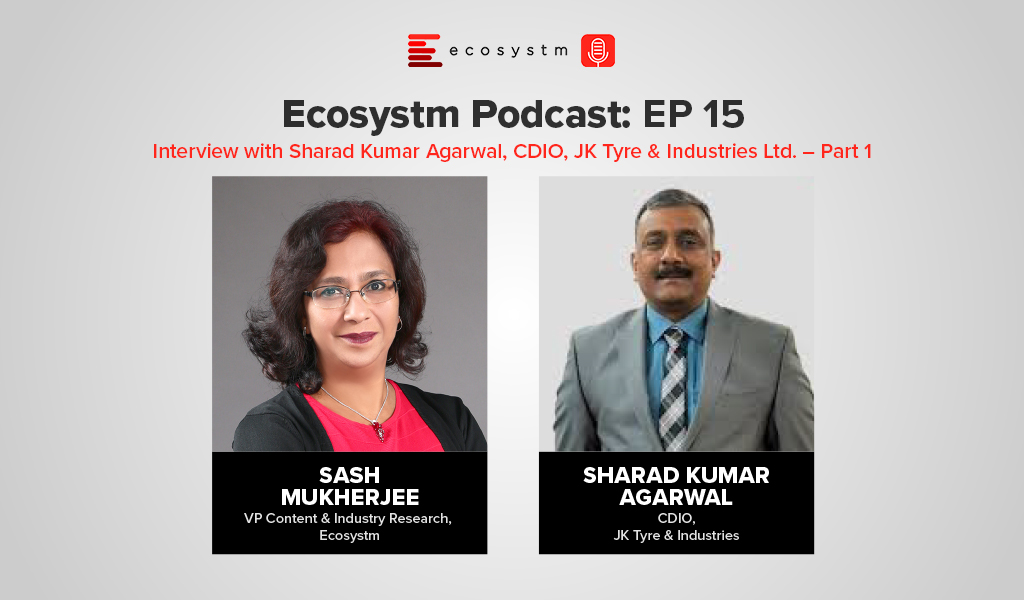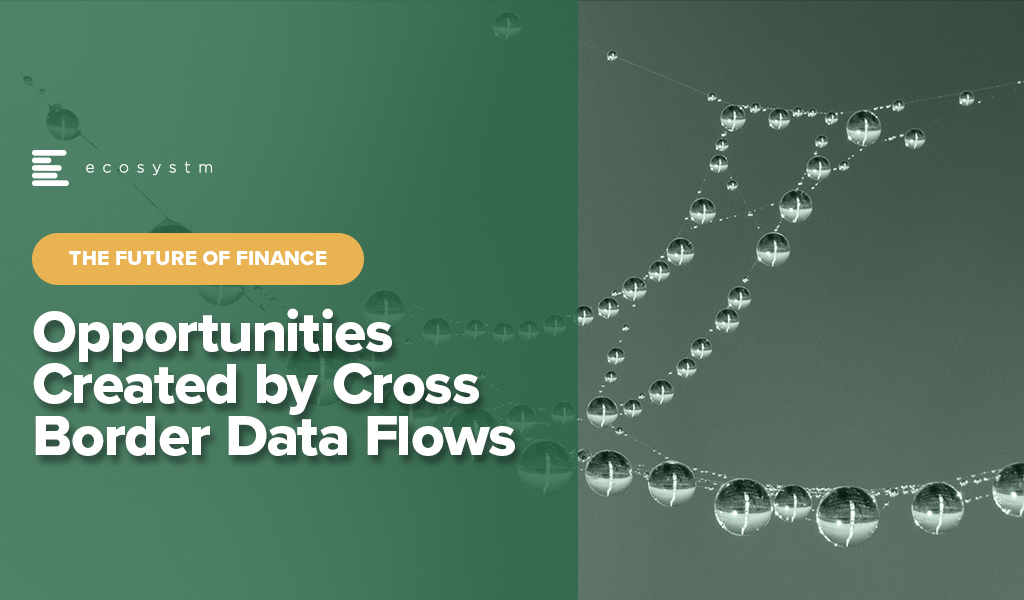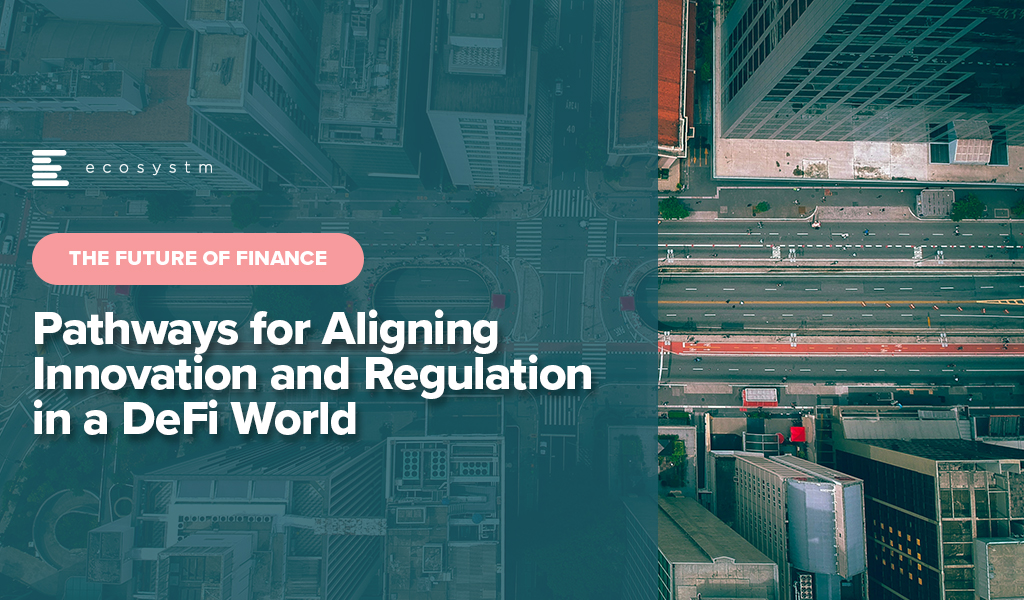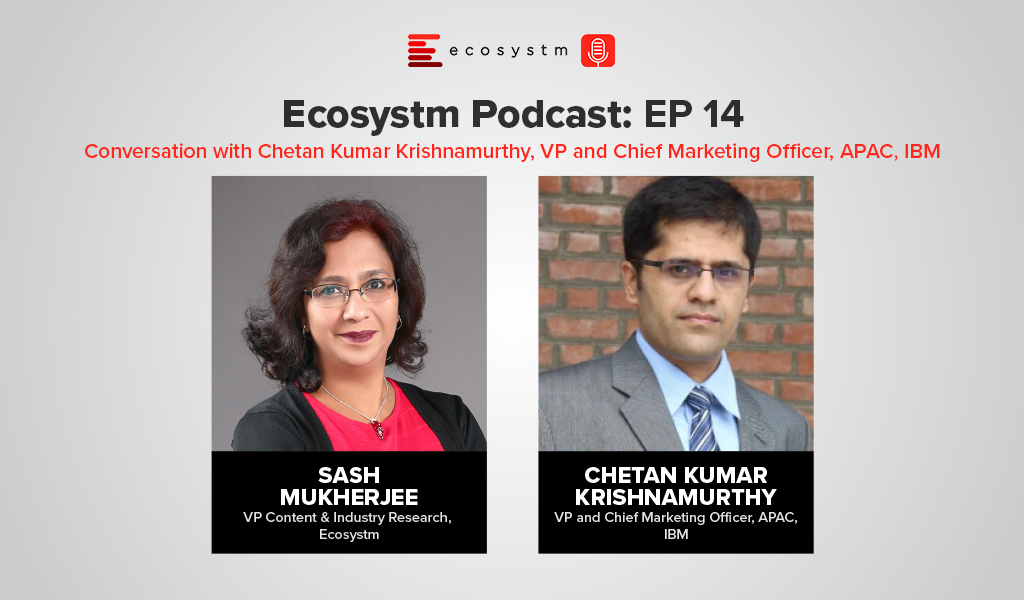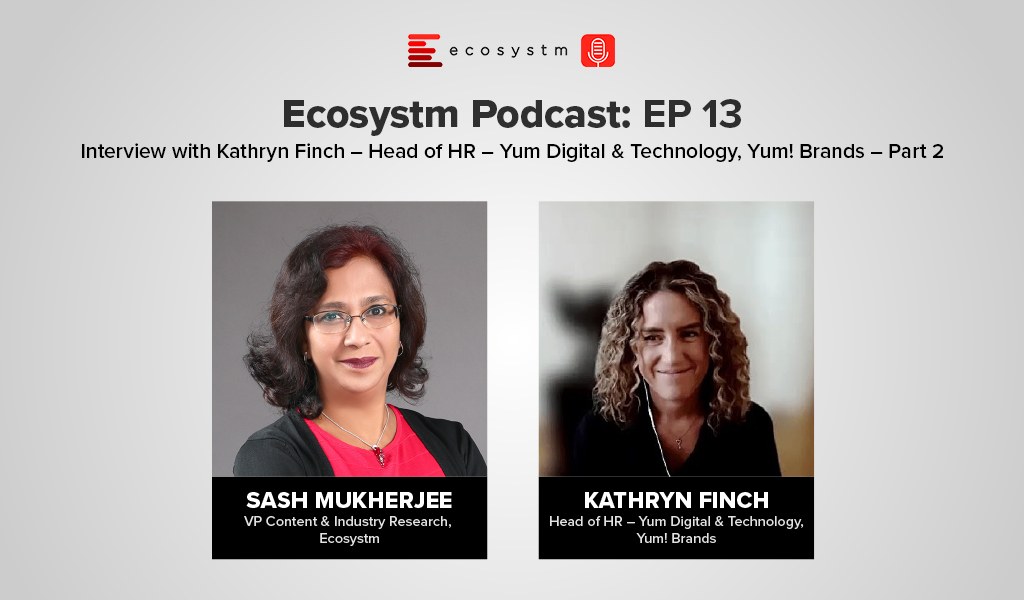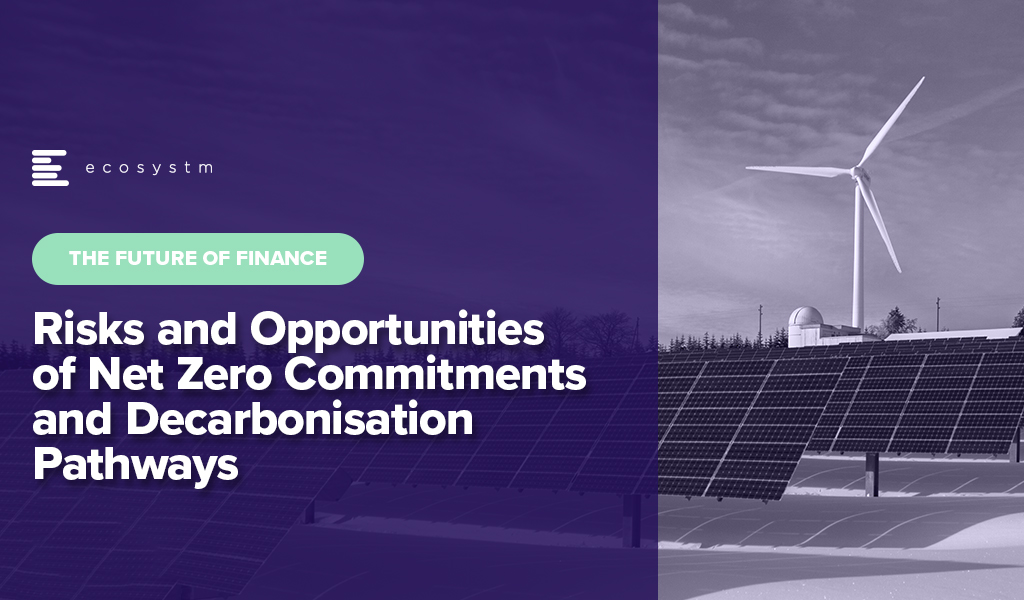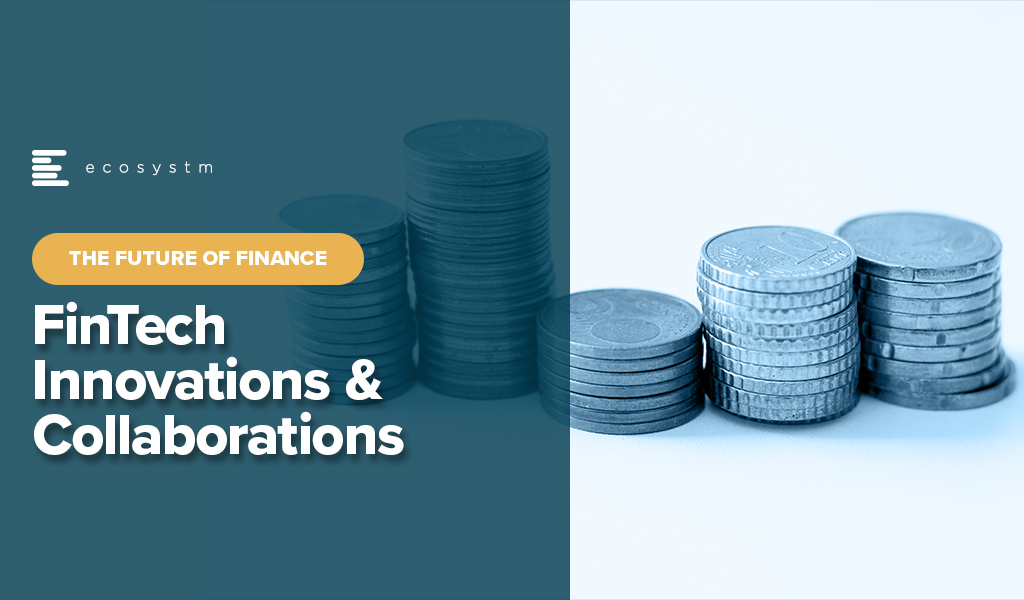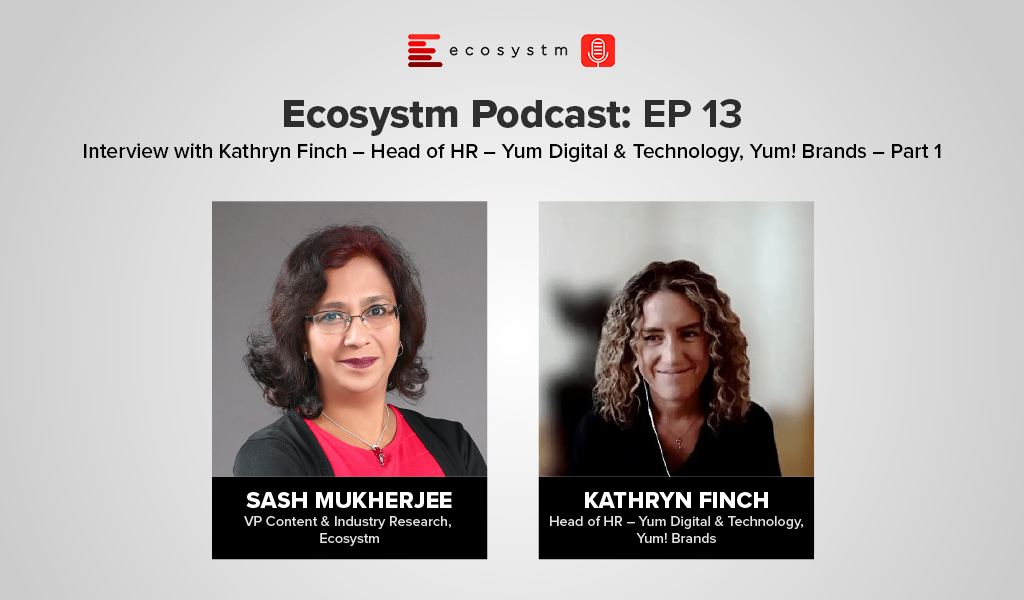Sash Mukherjee, VP Content & Industry Research, Ecosystm speaks to Sharad Kumar Agarwal, CDIO, JK Tyre & Industries – one of India’s oldest conglomerates.
Here is what Sharad has to say about:
- The opportunities for a CDIO in a data-driven world
- How technology leaders can build a unified IT environment despite the proliferation of apps and workloads
- The fine balance of being cyber-resilient without hampering customer & employee experience
- The power of embedding sustainability within an organisation’s culture
Podcast: Play in new window | Download (6.6MB)
Subscribe Spotify | Amazon Music | JioSaavn | Podchaser | RSS | More
Ecosystm, supported by their partner Zurich Insurance, conducted an invitation-only Executive ThinkTank at the Point Zero Forum in Zurich, earlier this year. A select group of regulators, investors, and senior executives from financial institutions from across the globe came together to share their insights and experiences on the critical role data is playing in a digital economy, and the concrete actions that governments and businesses can take to allow a free flow of data that will help create a global data economy.
Here are the key takeaways from the ThinkTank.
- Bilateral Agreements for Transparency. Trade agreements play an important role in developing standards that ensure transparency across objective criteria. This builds the foundation for cross-border privacy and data protection measures, in alignment with local legislations.
- Building Trust is Crucial. Privacy and private data are defined differently across countries. One of the first steps is to establish common standards for opening up the APIs. This starts with building trust in common data platforms and establishing some standards and interoperability arrangements.
- Consumers Can Influence Cross-Border Data Exchange. Organisations should continue to actively lobby to change regulator perspectives on data exchange. But, the real impact will be created when consumers come into the conversation – as they are the ones who will miss out on access to global and uniform services due to restrictions in cross-country data sharing.
Read below to find out more.
Click here to download “Opportunities Created by Cross Border Data Flows” as a PDF

This month IBM conducted a series of briefings for analyst firms in Asia Pacific, led by their senior leadership team including CEO Arvind Krishna.
Ecosystm analysts Alan Hesketh, Peter Carr and Tim Sheedy share their thoughts about the emergence of the “new IBM”; their strategy for the next year and in the longer term; and their technology roadmap.
Read on to find out more.
Click here to download Ecosystm VendorSphere: Is this the “New IBM”? as a PDF

Ecosystm and Bitstamp, conducted an invitation-only Executive ThinkTank at the Point Zero Forum in Zurich. A select group of regulators and senior leaders from financial institutions from across the globe came together to share their insights and experiences on Decentralised Finance (DeFi), innovations in the industry, and the outlook for the future.
Here are the 5 key takeaways from the ThinkTank.
- Regulators: Perception vs. Reality. Regulators are generally perceived as having a bias against innovations in the Financial Services industry. In reality, they want to encourage innovation, and the industry players welcome these regulations as guardrails against unscrupulous practices.
- Institutional Players’ Interest in DeFi. Many institutional players are interested in DeFi to enable the smooth running of processes and products and to reduce costs. It is being evaluated in areas such as lending, borrowing, and insurance.
- Evolving Traditional Regulations. In a DeFi world, participants and actors are connected by technology. Hence, setting the framework and imposing good practices when building projects will be critical. Regulations need to find the right balance between flexibility and rigidity.
- The Importance of a Digital Asset Listing Framework. There has been a long debate on who should be the gatekeeper of digital asset listings. From a regulator’s perspective, the liability of projects needs to shift from the consumer to the project and the gatekeeper.
- A Simplified Disclosure Document. Major players are willing to work with regulators to develop a simple disclosure document that describes the project for end-users or investors.
Read below to find out more.
Download Pathways for Aligning Innovation and Regulation in a DeFi World as a PDF

Chetan Kumar Krishnamurthy, Vice President and Chief Marketing Officer, APAC, IBM caught up with Sash Mukherjee, VP Content & Industry Research, Ecosystm recently to discuss what businesses should focus on when developing and re-inventing their change strategies.
Listen to this episode to find out Chetan’s views on:
- How organisations can keep up with the pace of change, handling all their different (often conflicting) priorities
- The strategies to manage technical debt
- How organisations can build a culture of change
Podcast: Play in new window | Download (5.1MB)
Subscribe Spotify | Amazon Music | JioSaavn | Podchaser | RSS | More
Listen to part 2 of the conversation between Sash Mukherjee, VP Content & Industry Research, Ecosystm and Kathryn Finch, Head of HR – Yum Digital & Technology, Yum! Brands.
Listen to Kathryn’s views on the continued impact of the Great Resignation, and the need to evolve people strategies to promote employee retention. Kathryn also talks about how HR leaders and tech teams can come together to create a positive work environment.
Podcast: Play in new window | Download (5.1MB)
Subscribe Spotify | Amazon Music | JioSaavn | Podchaser | RSS | More
Ecosystm supported by their partner EY, conducted an invitation-only Executive ThinkTank at the Point Zero Forum in Zurich. A select group of regulators, investors, technology providers, and senior leaders from financial institutions from across the globe came together to share their insights and experiences on the practicability, regulatory support, and implications of sustainable finance portfolios.
Here are some of the key takeaways from the ThinkTank.
- The Barriers to a Sustainable Future. The first step towards a sustainable future is recognising the challenges organisations face when pursuing Net Zero targets. Often, Net Zero targets are looked upon as additional costs.
- Overcoming the Challenges. It is important to connect Net Zero back to business goals, given that there might be sudden shifts in regulations and because of the emergence of environment-conscious consumers.
- A Sustainable Future Requires a Collaborative Approach. Global governments, regulators, Financial Services institutions, other enterprises, and technology providers need to collaborate on building a sustainable future.
- A Time for Simplification. Clear mandates on reporting climate aspects similar to how financial aspects are reported, will result in greater adoption of sustainability and ESG measures.
- The Role of Digital Architecture. The path to a Net Zero, decarbonised world will be technology-led.
Read below to find out more.
Download Risks and Opportunities of Net Zero Commitments and Decarbonisation Pathways as a PDF

Innovation and collaboration are the cornerstones of FinTech success stories. Successful FinTechs have identified market gaps and designed innovative solutions to address these gaps. They have also built an ecosystem of partners – such as other FinTechs, large corporates and financial services organisations – to deliver better customer experiences, create process efficiencies and make compliance easier.
As FinTechs have become mainstream over the years the innovations and the collaborations continue to make technology and business headlines.
Here are some recent trends:
- The Growth of Cross-border Finance. Globalisation and the rise of eCommerce have created a truly global marketplace – and financial agencies such as the MAS and those in the EU are responding to the need.
- Transparency through Smart Contracts. As businesses and platforms scale applications and capabilities through global partnerships, there is a need for trusted, transparent transactions. Symbiont‘s partnership with Swift and BNB Chain‘s tie-up with Google Cloud are some recent examples.
- Evolution of Digital Payments. Digital payments have come a long way from the early days of online banking services and is now set to move beyond digital wallets such as the Open Finance Association and EU initiatives to interlink domestic CBDCs.
- Banks Continue to Innovate. They are responding to market demands and focus on providing their customers with easy, secure, and enhanced experiences. NAB is working on digital identity to reduce fraud, while Standard Chartered Bank is collaborating with Bukalapak to introduce new digital services.
- The Emergence of Embedded Finance. In the future, we will see more instances of embedded financial services within consumer products and services that allows seamless financial transactions throughout customer journeys. LG Electronics‘ new NFT offering is a clear instance.
Read below to find out more.
Download The Future of Finance: FinTech Innovations & Collaborations as a PDF

In this episode of EcosystmPodcast, Sash Mukherjee, VP Content & Industry Research, Ecosystm is in conversation with Kathryn Finch, Head of HR – Yum Digital & Technology, Yum! Brands.
Hear Kathryn’s views on:
- The ways to build global, borderless organisations
- The relevance of a unified corporate culture in today’s world
- The role of leadership in shaping People & Culture strategies
In part 2 of the conversation, Kathryn talks about the ways to build HR-Tech synergy.
Podcast: Play in new window | Download (6.1MB)
Subscribe Spotify | Amazon Music | JioSaavn | Podchaser | RSS | More


